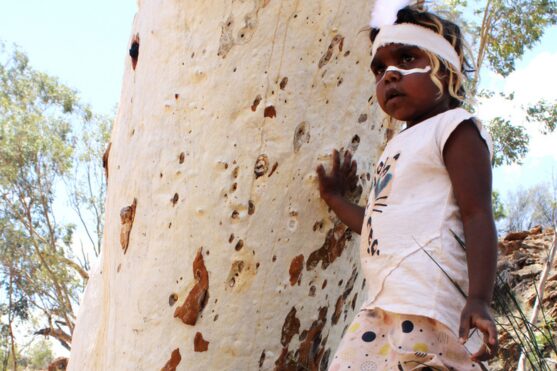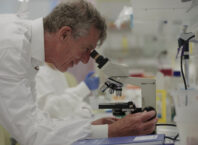Staying the course for generational change with Children’s Ground
Children’s Ground is designed to change the status quo – led by First Nations people and the oldest knowledge systems in the world to achieve radical reform for First Nations children over a 25-year period.
How impact investment is making a difference in global health equity
Impact investing is playing a critical and growing role in the development of medicines to treat ‘neglected diseases’ affecting the world’s poorest and most underserved peoples. These medicines would not otherwise be developed by the pharmaceutical industry, which is primarily driven by financial returns. Here, Mark Sullivan AO, founder and managing director of Medicines Development for Global Health, an Australian biopharmaceutical not-for-profit, describes how this finance model is supporting the development of Moxidectin – a potential gamechanger for the WHO’s roadmap to ending river blindness by 2030.
Professor Ian Frazer backs double giving, saying philanthropy supports breakthrough research: video
One of Australia’s leading medical researchers, Professor Ian Frazer AC, who co-invented the cervical cancer vaccine, has joined with Philanthropy Australia to call for the nation to double charitable giving to medical research by 2030 from $1.5 billion to $3 billion. Philanthropy Australia has launched a new video telling the story of how philanthropy underpinned virtually all of Professor Frazer's early work.
Snow Medical to revolutionise immunology research globally with $100 million gift
In one of the largest and longest-running philanthropic partnerships in Australian history, the Snow Medical Research Foundation (Snow Medical) announced this week that it will work with the Walter and Eliza Hall Institute to establish one of the world’s leading immunology research centres with an initial commitment of $100 million over 10 years. It will be called the Snow Centre for Immune Health, and the emphasis of the funding is to create the long-term capacity to allow scientists to pursue bold research programs. Ongoing investments are expected beyond 10 years.
How Beyond Blue’s ‘Way Back’ program went national
The aftercare offered to someone following a suicide attempt was woefully lacking only 10 years ago. Beyond Blue, along with an entire ecosystem of philanthropic support, community members, government and primary health networks tackled the issue in 2014 and developed the Way Back program. Earlier this year, the successful scheme was handed over to federal and state governments to run, with more than $150 million in funding, called Universal Aftercare. Ahead of World Mental Health Day on 10 October, we look at how it all came together.
Victoria launches ‘Lifeline Narrm’ to support community in crisis
Lifeline Narrm, launched yesterday as an urgent call to action to address Crisis Support and Suicide Prevention for all Victorians.





